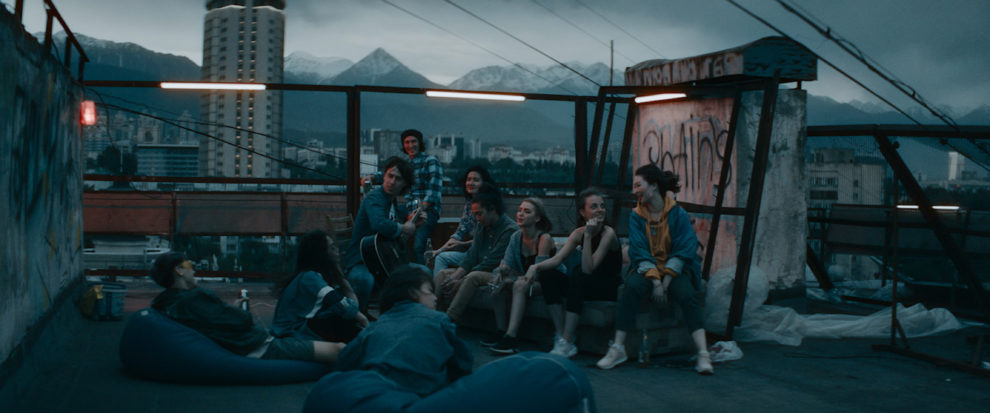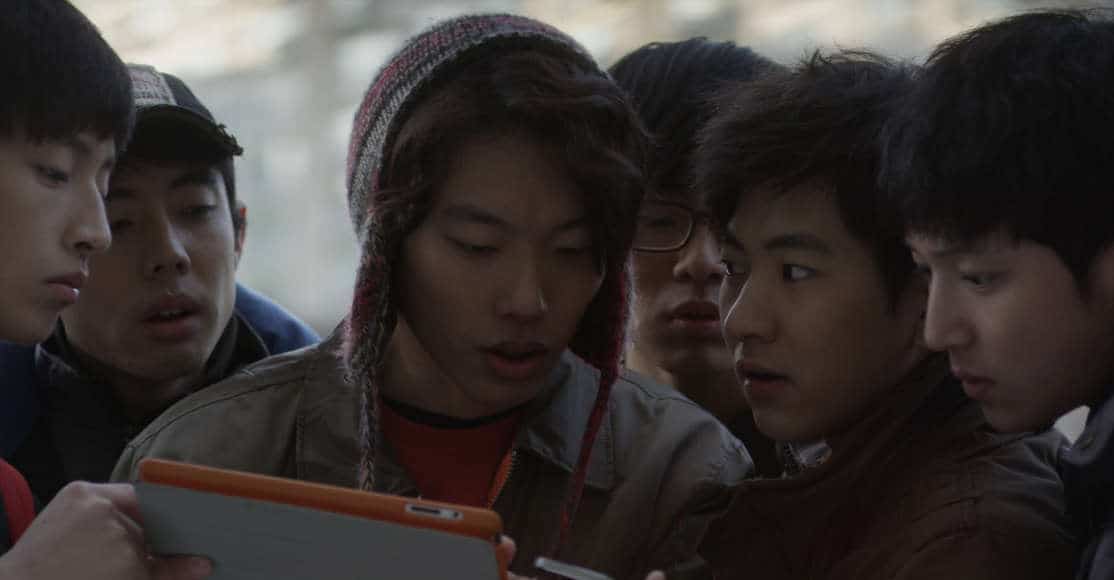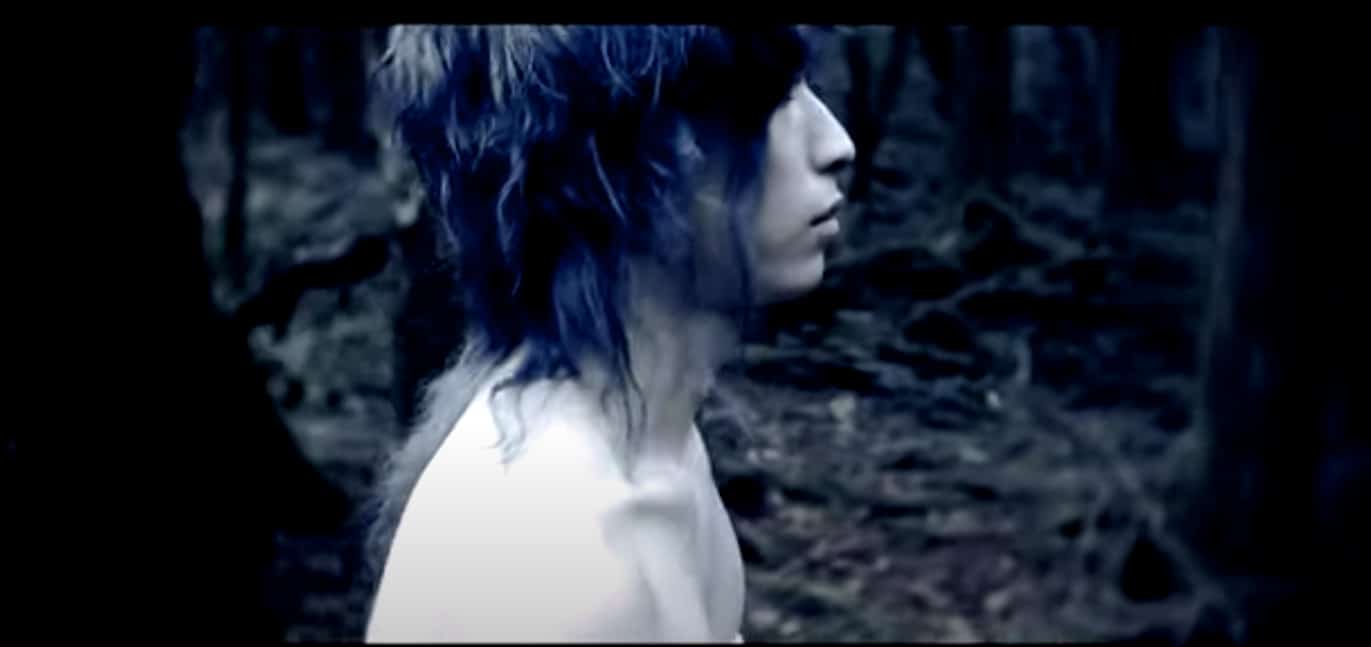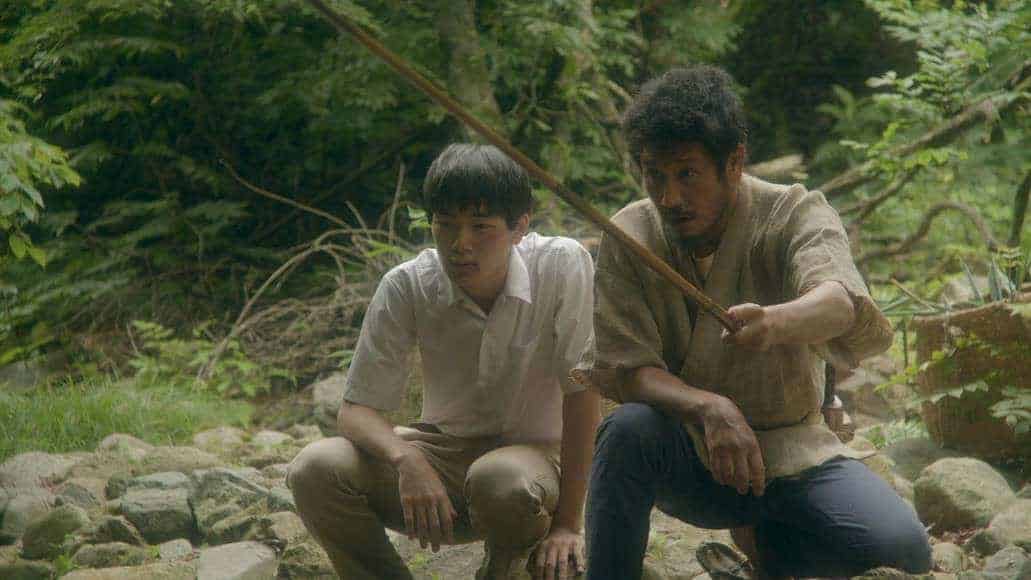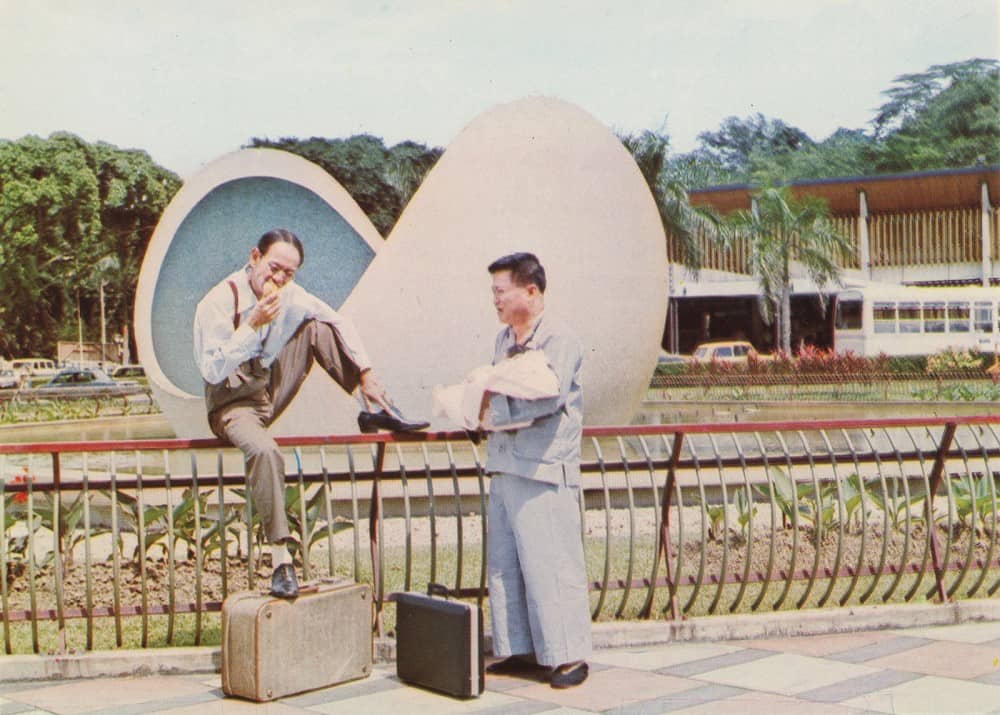Winner of Silver Pardino – Leopards of Tomorrow in Locarno, “History of Civilization” seems to have been inspired by the filmmaker's personal experiences, since she also moved to the UK from Kazakhstan, in order to study filmmaking at the London Film School
The short begins in a school gym, where a group of boys are playing basketball, although the focus is more on them than the actual game, through a rather artistic approach that implements a shaky camera, and the depiction of their shadows as much as of their actual bodies. The next scene takes place in a classroom, where a midterm about the history of civilization has just ended. The students deliver their papers to their teacher, Indira, who is soon revealed as the protagonist of the film. One of the boys, who was actually one of the basketball players, asks her if she is leaving the country. She does not answer, but there seems to be some sort of background here, particularly due to her subtle but eloquent reaction after all students have emptied the class.
The next scene presents the answer to the question, as the setting is transferred to the road by Indira's apartment, where movers are placing her stuff in a truck, while she is receiving people who are interested in renting her apartment. The first suitor is an impressively looking woman who is searching for a house for her son, who is also present, although their interactions seems to point towards a different relationship.
As night falls, Indira smokes a cigarette on the balcony, much like the aforementioned young man did in the previous scene, before she moves back to her work place, to pick up her last things. An impressive scene that has her high heels echoing in a high-ceiling room filled with columns lead to her office, and eventually the underground parking, where a colleague “ambushes” her. Although polite and eager to help, he also cannot help himself flaunting his ideas about how women should stop studying and have a family at some point, before he resorts to the nationalistic approach, about great minds leaving the country, in an accusation camouflaged as a compliment.
The night then takes a completely different turn, as a number of students, including the aforementioned basketball player, are also leaving the parking, and invite her to a party in a club of sorts. The next scene sees her among a number of them, listening to loud music and dancing with a drink in her hand, enjoying herself, at least until the questions about her leaving come once more. One of the young men makes the “fashionable” accusation towards society about their lousy lives, only to receive a rather pointy reply: “Cowards always blame society”. The student does not seem to understand his “defeat” though, and proceeds on talking about her leaving, accusing her of abandoning the country that financed her education. A slightly annoyed Indira leaves to get some air, only to meet up with the basketball player.
The night finds her in the roof of a building in the company of many youths, who are singing and drinking, as they are watching the sunrise. She seems thoughtful however, instead of simply enjoying herself. The ending scene finds her in her apartment once more, facing a closed box and a decision.
Zhannal Alshanova directs a film whose episodic nature points towards a road movie, with each location and individual functioning as a metaphor for Kazakh society, and a hurdle to her path towards leaving the country. Through this approach, Alshanova comments on both the people living the country, essentially moving beyond the restrictions Kazakhstan imposes, and the ones that are left behind, who, despite their seemingly ideological protests, are actually just bitter. That this bitterness and essentially patriarchal and jingoistic comments come from both a middle-aged and a young man, provides a comment about the ways society is thinking as a whole, in a rather pointy comment. Her interaction with the basketball player, which seems to be the only one who does not share this attitude, also moves towards the same path.
This scene, just outside the club, is also very intelligently connected with the duo that comes to check Indira's apartment, in a rather cheeky approach that seems to state that “game recognizes game”.
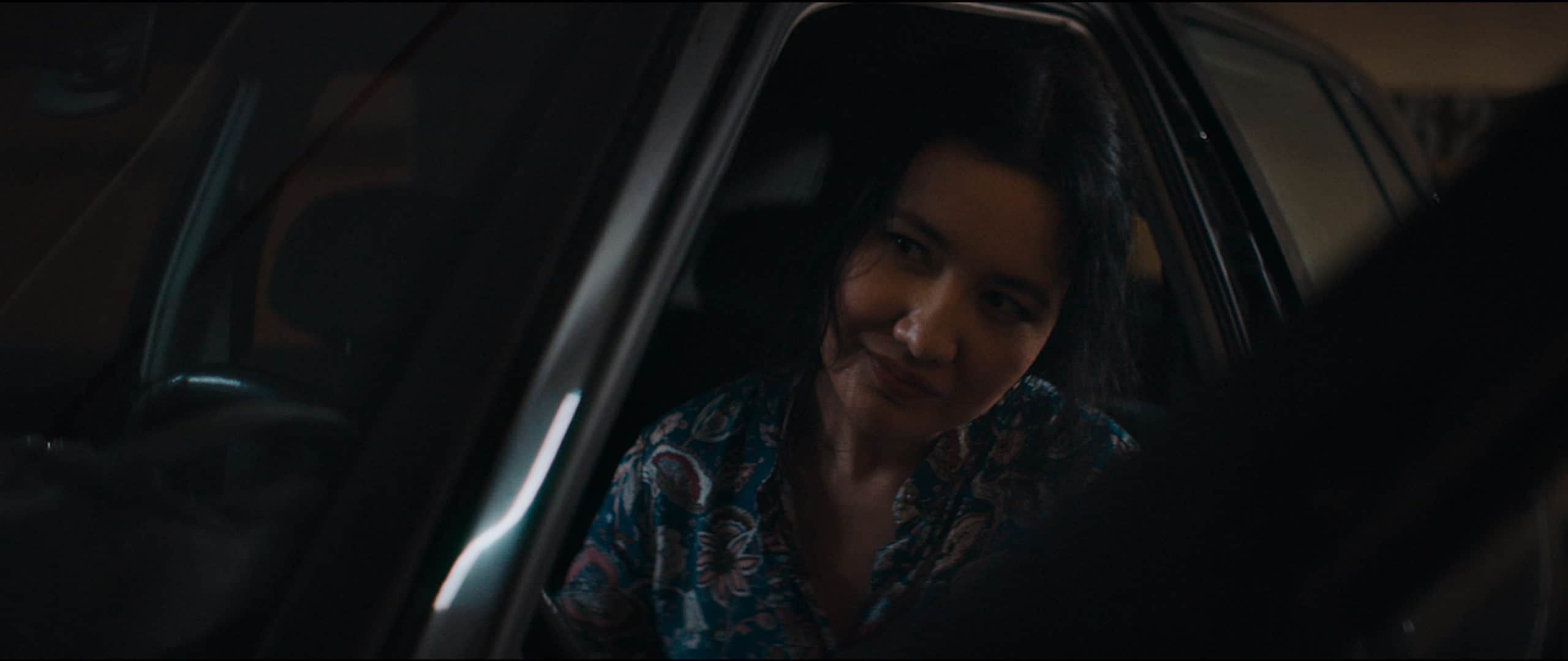
The ending is somewhat ambiguous, leaving the viewer to decide what is going on, although there is a slight nudge towards a specific direction.
Technically, much like “End of Season”, the film is on a very high level. Leandro Ferrao's cinematography captures the various locations excellently, also adding much to the context, as all the interior areas are portrayed as places that cause problems for the protagonist, while the scene in the roof as the only one that lets her feel free and actually think without people bothering her with their opinions. This particular scene, and the initial one, are where the visuals of the film find their apogee, as much as the job in the sound finds its own in the corridor one. Galimzhan Sanbayev's editing implements the episodic nature of the narrative quite nicely, through a relatively fast pace that moves in a higher speed than the usual art-house productions, while communicating the tension that mounts in the protagonist and the final release in the most ideal way, through the succession of the various sequences. Lastly, Akmaral Zykayeva as Indira is quite eloquent without having to speak that much, in perfect resonance with the overall laconic approach of the movie.
“History of Civilization” is an excellent short, that highlights Alshanova's directorial abilities, particularly in the way she manages to present her comments in just 15 minutes, through a visually impressive approach.


